Lithium—a mineral born in the stars and essential to life on Earth—is one of the most misunderstood elements in human health. Often reduced to its association with psychiatric medications or technology, lithium is far more than just a treatment for bipolar disorder or a key component in batteries.
In functional medicine, lithium’s natural, low-dose potential is gaining recognition as a transformative tool for optimizing mental health, brain function, and emotional resilience.
While high-dose pharmaceutical lithium has been long used to treat severe mental health conditions, low-dose lithium supplementation offers a safe, gentle, and holistic approach to maintaining cognitive and emotional well-being. By addressing the root causes of imbalance rather than masking symptoms, functional medicine practitioners are rewriting the narrative around this remarkable mineral.
If you’ve never considered lithium as part of your wellness journey, it’s time to uncover its hidden potential and understand how it could transform the way you approach health.
Understanding Lithium’s Role in the Body
Lithium is a naturally occurring trace mineral found in soil, water, and many foods. While its presence in nature is well-documented, its role in human health is often overlooked.
At a physiological level, lithium plays a crucial role in brain function and neurological health. It helps regulate neurotransmitter activity, supports cellular signaling, and promotes the stability of mood and cognition.
Scientific research has shown that lithium contributes to neuroprotection by enhancing brain-derived neurotrophic factor (BDNF), a key protein responsible for neuroplasticity and cognitive resilience. Additionally, lithium has been found to modulate oxidative stress and inflammation, both of which are linked to neurodegenerative conditions like Alzheimer’s and Parkinson’s disease.
Even in trace amounts, lithium appears to have a significant impact on mental and emotional well-being. Epidemiological studies suggest that populations consuming naturally higher levels of lithium in drinking water tend to have lower rates of depression and suicide.
This emerging evidence positions lithium as an essential nutrient, rather than merely a pharmaceutical intervention.
The Evolution of Lithium in Medicine
Lithium’s medicinal history dates back thousands of years, with ancient cultures valuing mineral-rich hot springs for their calming effects.
But it wasn’t until the 19th century that lithium was recognized in Western medicine, initially used for conditions like gout and mania. By the mid-20th century, lithium carbonate became a standard treatment for bipolar disorder, even earning FDA approval as a mood stabilizer.
However, the medical community’s focus on high-dose pharmaceutical lithium has often overshadowed its natural, low-dose benefits.
Lithium Recommended Dosage and Safety
In recent years, functional medicine has revisited lithium’s potential at nutritional levels—doses ranging from 1 to 5 mg per day.
Unlike pharmaceutical lithium, which can require blood monitoring due to potential toxicity, low-dose lithium supplementation is well-tolerated and has been linked to cognitive protection and emotional resilience.
For individuals considering lithium supplementation, the dosage is an important factor. Studies indicate that low-dose lithium (1 to 5 mg per day) can provide cognitive and emotional benefits without the risks associated with high-dose pharmaceutical lithium.
It’s thought that supplementation at even as little as 0.3 mg per day can improve cognitive performance and prevent mental decline in Alzheimer’s patients. Functional medicine practitioners typically recommend 1 to 5 mg daily for general wellness, with some cases requiring up to 20 mg depending on individual needs.
Considerations for Safe Supplementation
While low-dose lithium is generally safe, individuals with kidney disease or thyroid disorders should consult a healthcare provider before beginning supplementation.
High-dose pharmaceutical lithium has been linked to kidney and thyroid issues, but studies suggest that these risks do not apply to nutritional doses of lithium. Proper hydration and regular monitoring of kidney function can further ensure safe use in those at risk.
By integrating lithium with other functional medicine approaches—such as diet, lifestyle changes, and complementary nutrients—practitioners can help patients achieve greater emotional stability, cognitive protection, and overall mental well-being.
Misconceptions About Lithium
Despite its well-documented benefits, lithium remains misunderstood. Many people associate it solely with psychiatric medication, overlooking its essential role as a trace mineral. Unlike prescription lithium, which is used at high doses for mood disorders, low-dose lithium functions as a gentle, natural brain-supporting supplement.
Concerns about lithium toxicity stem from pharmaceutical use, where doses often exceed 600 mg per day. However, at microdose levels, lithium is well within the safe range found in natural food sources and drinking water.
A Strong Mineral for a Stronger Mind
Lithium’s story is a classic tale of rediscovery. Once overshadowed by its reputation as a psychiatric drug, it’s now emerging as a safe, natural supplement that supports brain health and emotional balance.
Functional medicine’s emphasis on addressing root causes has brought lithium’s unique abilities into the spotlight, offering a fresh perspective on how we can use this nutrient to support mental wellness.
As research continues to highlight the safety and efficacy of low-dose lithium, its role in holistic health strategies is only growing. Whether you’re managing stress, seeking to preserve cognitive function, or simply looking for a natural way to support your overall health, lithium offers a simple but powerful solution.
By giving this often-overlooked mineral the attention it deserves, we unlock new possibilities for achieving lasting wellness.


